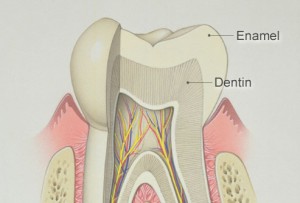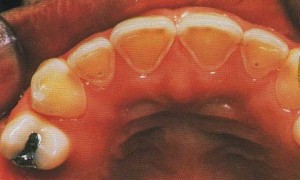Tooth enamel is the hardest and most highly mineralized substance in our body; however it does not mean that it is immune to its surroundings. Nutrition, diet and oral health are closely linked to each other. You need healthy teeth to chew and take in nutrition from food, and nutrition is essential for the growth, development, and maintenance of the structures and tissues in the mouth.
How does diet affect my teeth?
During the period of rapid cell growth in the body, having nutritional deficiencies can have an irreversible effect on the growing tissues in the mouth. There are two phases where diet can influence tooth structures.
- Before the tooth erupts out into the mouth, nutritional status can affect tooth enamel maturation and chemical composition as well as tooth structure and size. A child is more prone to tooth decay in baby teeth if there is early malnutrition. Furthermore, nutritional deficiencies or toxicities throughout life can affect healing and functioning of oral tissues. For example, too little fluoride in the body may cause your teeth enamel to be more prone to tooth decay whereas excessive fluoride consumption can lead to tooth fluorosis. However nutrition may not be able to help those with in-born conditions that weaken the tooth enamel such as enamel hypoplasia, hypomineralized enamel and amelogenesis imperfecta.
- After tooth eruption, foods that strengthen teeth have local effects rather than a general effect on the body. Tooth decay is influenced by our diet and eating patterns whereby our choice of food can worsen or minimize decay of our teeth. Factors such as eating frequency and retention of fermentable carbohydrates influence the progression of tooth decay for they affect the activity of bacteria in dental plaque. Foods containing calcium and phosphorus, such as cheese, enhance remineralization of tooth enamel.
Frequent intake of acidic foods or beverages, such as lemon and carbonated drinks, can cause erosion of tooth enamel. On the other hand, those with loose or missing teeth, or ill-fitting dentures often reduce their intake of foods that require chewing, such as fresh fruits, vegetables, meats, and breads. When the variety of foods in a diet is reduced, there is greater risk of nutrient deficiencies. Individuals with diabetes mellitus, oral cancer, or depressed immune function may have a compromised nutritional status due to their oral conditions.
What are the foods or drinks that can strengthen tooth enamel naturally?
Below is a list of foods or drinks that could strengthen tooth enamel naturally:
- Milk and milk products like cheese – these foods are rich in calcium and phosphorus which are essential to strengthen enamel.
- Vegetables – dark green leafy vegetables (such as kale, broccoli, bok choy) contain vitamin K, that may be involved in bone formation, and calcium. Spinach has a high nutritional value and is extremely rich in antioxidants, vitamin A, vitamin C, vitamin K, magnesium, calcium, and phosphorus which are important to strengthen your teeth.
- Citrus fruits – vitamin C contained in these fruits assists in the formation of cells involved with tooth formation.
- Fish with edible bones – sardines has edible bones which are a good source of vitamin D, calcium and fluoride.
- Cereal grains – these foods contain magnesium which aids in jaw bone formation and production of tooth enamel.

- Tofu – it is relatively high in protein and depending on the manufacturer coagulation, may also be high in calcium and/or magnesium.
- Oysters – considered the healthiest when eaten raw, oysters are excellent sources of several minerals, including calcium.
- Soy milk – soy milk has a good source of calcium and is a healthy alternative to cow’s milk for those who are allergic to milk or have lactose intolerance.
- Protein–rich foods – meat, poultry, fish, eggs and other protein-rich foods contain phosphorus which is a major component of bones and teeth.
 Tea – all tea leaves contain fluoride which helps strengthen tooth enamel and protect teeth from decay. It may also protect against osteoporosis by strengthening bones.
Tea – all tea leaves contain fluoride which helps strengthen tooth enamel and protect teeth from decay. It may also protect against osteoporosis by strengthening bones.
The list of foods or drinks above is just a few of the many other foods that help strengthen tooth enamel naturally. Although several vitamins and minerals ultimately contribute to bone and tooth formation and preservation; calcium, phosphorus and vitamin D are the ones that should be noted for they directly aid the process to strengthen your teeth.
Do take note that nutrition only plays a part in keeping our teeth healthy. To ensure your teeth stays in tip-top condition, you should:
- Eat a well-balanced diet and restrict sugar-containing foods to mealtime.
- Good oral hygiene should be practiced by brushing your teeth thoroughly twice a day with fluoridated toothpaste.
- Avoid smoking and excessive drinking of alcohol.
- Remember to visit your dentist regularly (at least twice a year) for a professional cleaning and examination of your mouth.




Pingback: How Your Daily Habits Can Hurt Your Teeth | Intelligent Dental
Pingback: Why is Oral Health so Important? | Intelligent Dental
the above inormation is good thank you